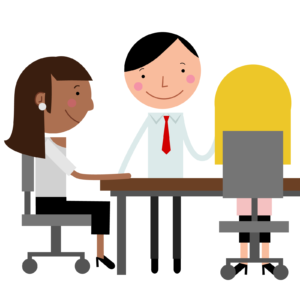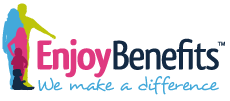 Every individual brings unique strengths and perspectives to the workplace. As a leader or business owner, it’s important that you understand how to get the best out of people, and so this blog post takes a closer look at neurodiversity.
Every individual brings unique strengths and perspectives to the workplace. As a leader or business owner, it’s important that you understand how to get the best out of people, and so this blog post takes a closer look at neurodiversity.
It’s estimated that around 1 in 7 people live with neurodiverse conditions – including ADHD, autism, dyslexia and a range of anxiety-related disorders. With understanding and some practical adjustments, you can create an environment that supports neurodiversity, unlocks the potential of all staff and has benefits for business.
Over the next two blogs, we’ll look at what neurodiversity is, how it can benefit your business and offer tips for how to effectively support employees with neurodiverse perspectives in a way that maximises their potential.
What is neurodiversity?
 Neurodiversity refers to the different ways a person’s brain processes information. It encompasses a range of neurological conditions including autism, ADHD, dyslexia, Tourette’s syndrome, dyspraxia and dyscalculia, which result in your brain working differently from the average or ‘neurotypical’ person.
Neurodiversity refers to the different ways a person’s brain processes information. It encompasses a range of neurological conditions including autism, ADHD, dyslexia, Tourette’s syndrome, dyspraxia and dyscalculia, which result in your brain working differently from the average or ‘neurotypical’ person.
This might be differences in how you interact, ways of learning or communicating, or how you perceive the environment. It’s not unusual for neurodiverse staff to struggle with soft skills such as emotional intelligence, social interactions or the ability to work effectively in a group.
You can find out more about what it’s like to live with these conditions via this article from the BBC where young people talk about their experiences.
Why a neurodiverse team can be good for business
Neurodiversity doesn’t affect your intelligence – a common misconception. On the contrary, the ability to think in a different way means neurodivergent staff can approach problems differently, might be able to identify trends quickly or have great attention to detail.
Neurodivergent people are often hardworking, loyal, highly motivated creative thinkers and problem solvers who can enhance teams with their skill sets.
In a market where there is competition to recruit talent, neurodiverse colleagues can be a real asset to your business. They might also have ideas about how to position your product more effectively, given they are representative of the population in general.
Understanding more about the conditions and the strengths associated with them dispels myths and can help foster a more supportive, productive working environment for everyone.
Educating employees about neurodiversity through training sessions or workshops can be a good place to start. There may well be parents or relatives of neurodiverse children in your workforce so you could ask them to get involved, along with employees who are neurodivergent.
 Benefits for all
Benefits for all
Protecting the wellbeing of an employee is crucial if they’re to remain engaged and happy in their work. Enjoy Benefits offers an online wellbeing programme that offers everyone in your business access to a range of videos and fact sheets designed to help them with their emotional and physical wellbeing.
The programme covers different aspects of health and wellbeing including sleep, emotional agility and mental health with videos and factsheets they can access when they need to.
A recent study highlighted by The Guardian newspaper found a 787% rise in the number of autism diagnoses between 1998 and 2018 in the UK. Support and awareness have become essential to meeting the needs of an ever-changing workforce and helping your business to thrive through a diverse talent pool.
Check back next month for tips on how to manage staff with neurodiverse conditions.
About Us
At Enjoy Benefits, we have great experience in helping companies of all sizes introduce benefits that are suitable for their workplace.
Benefits are easy to set up and ongoing administration is then run through a hub, allowing employees to manage their own benefits while the employer can see which benefits are proving popular and what level of take-up each has had.
If you would like an obligation-free chat to discuss which benefits might work for your business and your employees, please contact us by calling 0800 088 7315 or using our Contact Form.



